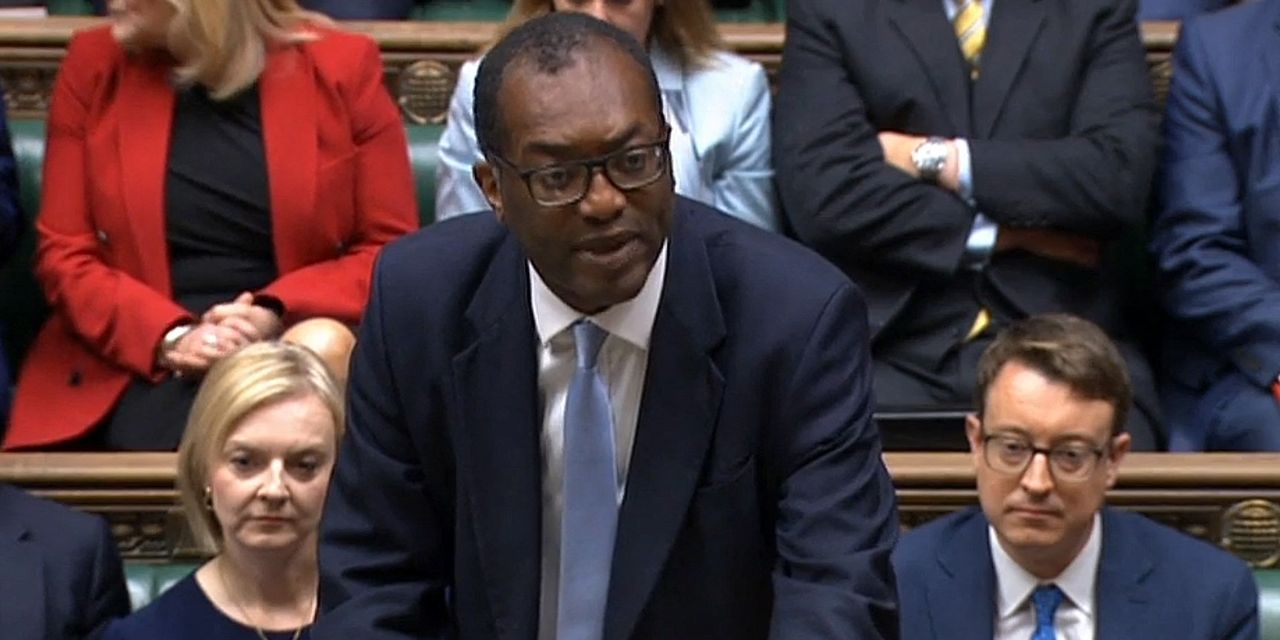Bond yields spiked on Friday as the U.K. government cut a host of taxes and for the first time quantified the cost of capping energy bills, saying it will cost £60 billion over the next six months.
The so-called mini-budget speech from Chancellor Kwasi Kwarteng outlined a plan to scrap corporate tax hikes, cut the top rate of personal taxes and lift a cap on banker bonuses.
The U.K. Treasury said the cost of the package would be financed by an additional £62 billion of gilt sales.
The yield on the 2-year gilt
TMBMKGB-02Y,
shot up 40 basis points to 3.89%. The yield on the 10-year gilt
TMBMKGB-10Y,
jumped 31 basis points to 3.80%, hitting a new 12-year high, continuing a meteoric ascent from 2.6% not even a month ago.
The pound
GBPUSD,
wobbled after the budget and then skidded to its lowest level in 37 years, falling below $1.11.
Paul Johnson, director of the Institute for Fiscal Studies, said the tax cuts were the biggest since 1972. “That Budget is now known as the worst of modern times. Genuinely, I hope this one works very much better,” he said in a tweet.
“The large fiscal spend just announced may boost growth a little in the short-term. But the bigger question is this: who will pay for it,” said George Saravelos, global head of FX research at Deutsche Bank. The answer, given the U.K. twin deficits, is foreign savers.
“It is extremely unusual for a developed market currency to weaken at the same time as yields are rising sharply. But, this is exactly what has happened since the new Chancellor’s announcement. We worry that investor confidence in the UK’s external sustainability is being eroded fast.”
Here are the key provisions.
- Cuts the basic personal tax rate to 19% from 20%, and eliminates the top tax rate of 45% for those making above £150,000
- Cancels the national insurance hike of 1.25 percentage points from Nov. 6
- Eliminates a planned increase in the corporate tax rate of 25%, keeping the rate at 19%
- First-time buyers will only pay stamp duty on homes above £425,000, up from £300,000
- Freezes taxes on alcohol from February, it what estimates is worth £600 million annually
The broader FTSE 100
UKX,
dropped by over 2%.
